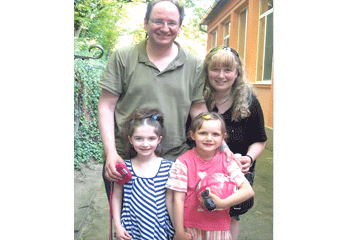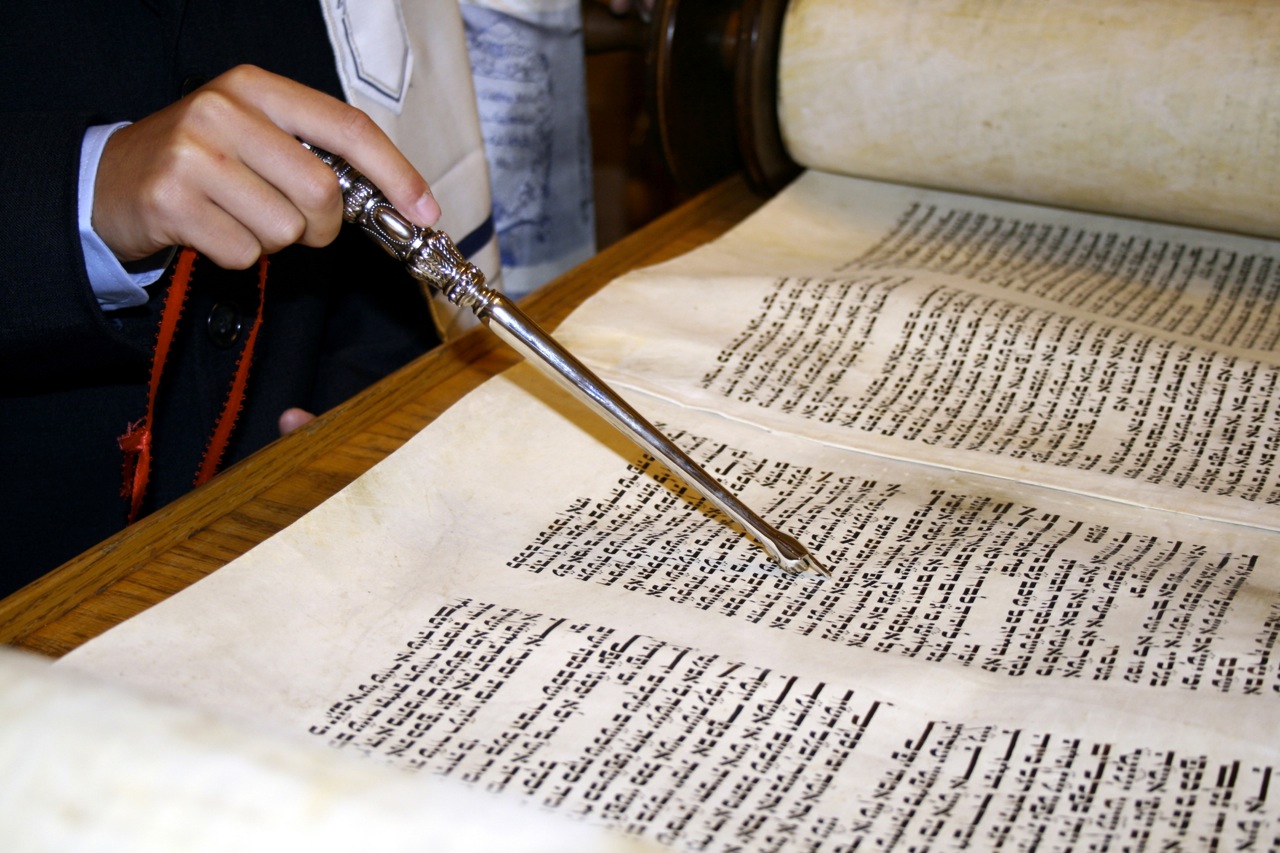It’s rare that babies born to Jewish mothers are available for adoption, since Jewish families are inclined to take care of their own orphans and reluctant to sever parental rights.
When Jewish families choose to adopt, therefore, the process almost always ends with a conversion for their adopted child.
But according to Toronto’s Beth Tikvah Synagogue spiritual leader Rabbi Jarrod Grover, recognition of conversions for adopted children remains an issue in the Jewish community, just as it is for adults.
He explained that unless the conversion is done by an Orthodox beit din, a child’s conversion, at birth or years later, could be challenged or deemed invalid if they choose to be bar or bat mitzvahed or married in an Orthodox ceremony.
“When you convert, you get a document, and the document outlines when the conversion happened. It has the names of the beit din – the panel of rabbis that supervise the conversion – and the document is only as valid… as the credibility of the rabbis on the panel,” Rabbi Grover said.
READ: THE CHALLENGES OF JEWISH ADOPTION
In Toronto, the Vaad Harabonim is the only body that can perform Orthodox conversions, and it rules that Conservative and Reform rabbis are unqualified to serve on a beit din for conversion, which “remains a major challenge in the Jewish community.”
As a result, if a family chooses a Conservative or Reform conversion, there are complications that could arise should a child choose to marry into an Orthodox family or move to Israel.
“In my years as a rabbi in Toronto,” Rabbi Grover said, “I have encountered dozens of cases of people coming to me saying, ‘I was adopted… I always thought I was Jewish, I never had an issue. Suddenly [an Orthodox rabbi] asks for my papers and they tell me – surprise, the rabbi who converted you did not meet our standards.’”
Although it may seem that the best way to avoid any issues is to convert with the Orthodox beit din, many non-Orthodox couples are turned away by the Vaad Harabonim because of their level of observance.
“It’s not easy, because the standard for Orthodox rabbis in Toronto is, I think, extremely stringent, and I respect them for that. But because of those stringencies, they make it basically impossible for many families who would like to adopt and have their child be recognized by the Orthodox community,” Rabbi Grover said.
One Toronto Orthodox rabbi spoke to The CJN in 2014 anonymously, and said that some of the requirements go “well beyond what the Halachah requires” and “are not reflective of more modern Orthodoxy.”
Rabbi Grover said some of the requirements include that the family be strictly shomer Shabbat and that the child attend an Orthodox Jewish school.
He said he has met many couples who come to him after being rejected by the Orthodox beit din.
“I’m not happy to do those conversions because part of the reason they go to an Orthodox rabbi first is because they know that it will be most recognized by an Orthodox rabbi. They may even attend an Orthodox synagogue themselves, and now they have to leave because I tell them their child will not be able to have a bar mitzvah in an Orthodox shul,” he said, adding that he performs about five conversions a year for adopted children.
Jan Silverman, an infertility counsellor who adopted two children when they were both just days old, recalled being rejected after seeking an Orthodox conversion about three decades ago.
“Someone gave me the name of [the late] Rabbi [Gedalia] Felder. I told him that I adopted a child and wanted to have her converted and he said, ‘Are you Orthodox?’ I said, ‘I’m not, but I’m identified, it’s a big part of my life. I’m a regular shul-goer, but I’m not Orthodox.’ And he said, ‘I can’t do it, but I can send you to one of my Orthodox colleagues. His reputation is not quite what mine is, but he’ll do it.’”
Offended by this offer, she declined.
Silverman, who calls herself a “card-carrying” Reconstructionist Jew, went the Reconstructionist route to convert her children.
“I heard, ‘Oh, but if your child wants to marry someone who is Orthodox you should be giving them an Orthodox conversion.’ I did a lot of soul searching, and I thought, ‘I am proudly and comfortably not Orthodox. I will raise my children with respect for Judaism, with the traditions… If it is ever important for them to marry [Orthodox], they can re-convert and go through another process, but I’m going to be true to who I am,” she said, adding that her kids identify “very clearly” as Jewish.

For Montreal-based mother Tanya Margolese who has four children – one biological, two step-children and one daughter, 10, who was adopted from an orphanage in Ukraine, the conversion process was nothing more than a formality.
“It was simple because we are modern Orthodox, so basically, we had to have three rabbis. We brought her to the mikvah, they said a few prayers and she is now considered Jewish,” Margolese said.
“She went to shul the first week and literally fit in. I can’t even explain it. She loved it so much and wanted to be a part of the community so badly that she was. And immediately people took her in and were great with her and with us,” she said.
“I found that everyone embraced her from the minute she came home. She also embraced everybody.”
For Aviva Zukerman Schure, who has volunteered for the Adoption Council of Ontario and Adopt4Life since she adopted her now 20-year-old daughter about two years ago, the process was a little more complicated.
When her daughter, who is Korean, expressed interest in converting, to “be the same as the rest of [her] family,” they moved ahead with the process.
“They wanted her to go to classes, go in front of a board, discuss things. I said, ‘My child has already spent her life in front of people making decisions for her and it doesn’t matter if we adopted her when she was born or at 18. She’s our child. We’re not marrying her. So her conversion should be instant in the way that a newborn’s is,’” Schure said.
“I think the Jewish community has to catch up when it comes to converting older youth who are adopted… We need to stop making it so hard for families who adopt older youth to have their children converted.”
In the end, Schure’s daughter went though a Reform conversion, during which she went to a mikvah and made a verbal commitment to honour the values of Judaism.
“Because she’s not white… it’s one of the reasons we wanted her to have that certificate… No one will ever ask my sons for their certificates of Judaism. It’s because she doesn’t look like us that I wanted her to have that piece of paper so that no one could ever deny her that right as the child of Jewish parents,” she said, adding that her family has only experienced “appreciation and understanding in the community.”
READ: SUPPORTING OLDER KIDS IN FOSTER CARE HAS ITS OWN REWARDS
Elissa Gamus, a Toronto-based family lawyer, who adopted her son Joseph, 7, from birth and converted him to Judaism through an Orthodox conversion when he was six weeks old, said the process wasn’t difficult, but expressed concern about how he’ll be accepted in the Jewish community when he’s old enough to date.
“Joseph is visibly black, and his personality, like the way he walks, his interest in certain things – he connects both with the Jewish community and with the black community,” Gamus said.
She said her son had no issue identifying with the Jewish community “because we’re Jewish.”
But, she added, “As much as he is welcomed by all his friends… what happens when he gets older and wants to date one of them?” She worries about whether their parents will be accepting of that.
Silverman feels the same uncertainty. “In the Orthodox community, it is not easy in terms of what is accepted and what isn’t accepted. Are [her children] marriageable? When you start fixing your kids up, are they less than?” she said.“My son is not married and there are times when someone will talk about a single daughter and I’ll stay out of it at this point of my life. I always perceived this, ‘Oh, but what’s his background? Is he really [Jewish]?’”
This is part three in a series on adoption in the Jewish community. For part one, click here. For part two, click here.
